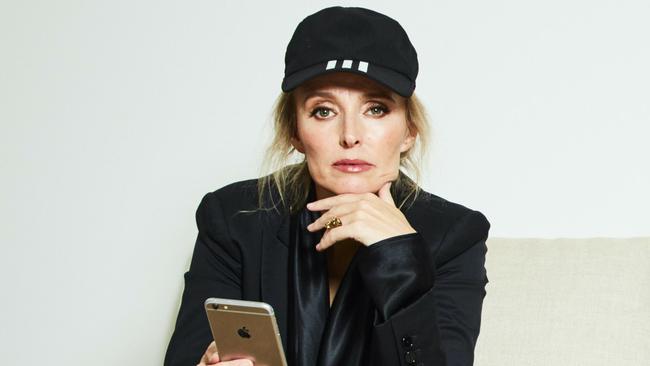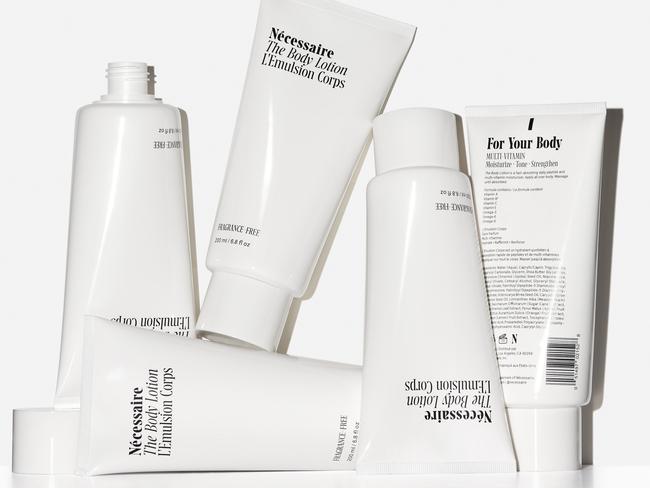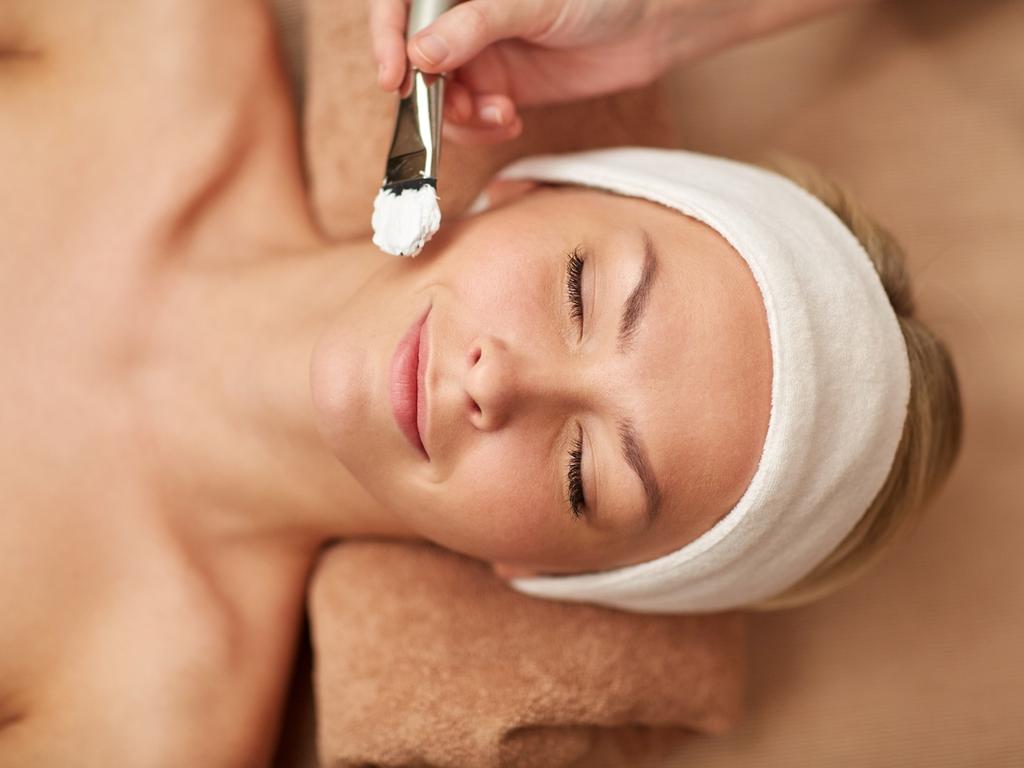‘Unsexy beauty’: the bodycare business boom we all have skin in
Necessaire is one brand leading the push for skincare to extend well beyond the face – and consumers are following suit.

It makes sense, really, that the $US146.7bn ($224.2bn) global beauty industry has turned its attention to the rather less sexy aspects of maintenance. This includes such things as Chanel doing deodorant, a slew of luxury products for dry, itchy scalps, and the neutral-hued bathroom “shelfie” ready razors from Australian brand Lui.
One such brand to capitalise on the bodycare boom is Necessaire. It was launched in 2018 by Randi Christiansen, a former long-time executive at Estee Lauder and Nick Axelrod, who has an editorial background, with the view that “bodycare is the new skincare”.
Since its launch Necessaire, with its chic packaging and science-focused ingredients, has carved out a niche in the less saturated categories of luxury beauty. The range includes body moisturisers infused with anti-ageing ingredients such as retinol, deodorants and scalp serums.
Part of the success of the brand, which launched into MECCA earlier this year, says Christiansen, is its alignment with people’s obsession with “optimising” their lives. Social media-driven beauty trends such as the “everything shower” – where people detail how they use this once perfunctory time to indulge in such head-to-toe rituals as a hair mask, scrub and body oil massage – has also contributed to growth.
What’s more, as people are both more time-poor and far more knowledgeable about what goes into their skincare thanks to social media, Christiansen says they expect more. Frankly, consumers want skincare products – wherever they’re putting them – to work.
“Dialogues … around the physiology of skin and the processes in skin – the collagen slowdown, the natural peeling process slowdown, dehydration slowdown, slowdown (of skin renewal), the defence process for hyperpigmentation from stressors and sun – these are full body processes and consumers are getting wind of that,” she says.
“So they’re like, ‘oh, so collagen slows down on the face, it’s also a wrinkle on the neck, it’s laxing skin and on my arms it’s crepiness’. It’s all the same process and retinol can help all of it. So why wouldn’t I go beyond, below the neck?”
Christiansen believes the brand was launched at the right time, when people were more interested in what they put in, and on, their bodies. “We became more focused on wellbeing, health and our body. And the moment we became focused on it, it was what we drink, what we eat, what we put on it, how we feel in our skin, how we feel in our clothes.”
She notes too how science and technology are becoming an ever more important aspect of successful skincare brands, observing that the worlds of biotech and skincare are merging ever closer.
She believes these ideas of “hacking”, be it our sleep, adding supplements or ingestible beauty products such as collagen to what we drink, has extended to bodycare too. “We wanted to make body the first thought, not the conventional afterthought. We pioneered that, this idea of skincare for the body and how to think about it,” she says, adding that she no longer believes consumers think of their body as something to cover up and not care about.

Alison Scanlon, MECCA’s head of emerging categories, says brands such as Necessaire fit with what she calls the “skinification” of the bodycare category. That category, she says, has experienced significant growth over the past 12 months and is one of the beauty giant’s fastest-growing sectors. “The ‘skinification’ of body is a growing trend we’re seeing as customers become more savvy with their understanding of ingredients and formulations. With an increased awareness of sun-damaged skin and active ingredients, customers are more and more looking to treat the skin on their bodies with just as much care as the skin on their faces,” Scanlon says.
“Of our MECCA customers, three in four found active ingredients in body care appealing and nine in 10 want actives in body lotions, exfoliants and body wash (and/or) soap. Vitamin E, hyaluronic acid and vitamin C are most commonly sought after in body lotions, creams, butters and serums while the 18-34 age group are more commonly seeking acne-fighting ingredients such as salicylic acids, AHAs and glycolic acids.”
Other categories the beauty giant has experienced growth include scalp serums (up 171 per cent year on year) and oils (up 85 per cent year on year). Category-leading brands and products include deodorants such as Necessaire’s The Deodorant Gel (formulated with 5 per cent AHA blend to help optimise underarm pH and prevent odour), Malin + Goetz and Le Labo deodorants, Gisou Honey Infused scalp treatment and Briogeo Scalp Revival Charcoal + Coconut Oil Micros-exfoliating Scalp Scrub shampoo and Omorovicza Soothing Shave.
It’s a similar story at LVMH-owned global beauty retailer Sephora with Angelique Hogan, retail education director at Sephora Southeast Asia, Oceania and Korea, attributing the growth to the expansion of “self-care”.
“With the self-care movement gaining popularity, Sephora has seen an increased interest in the personal care space. Expanding beyond skincare to now focus on holistic wellness, that extends into haircare/scalp care and body care,” Hogan says.
“Notably, we have seen particular growth in deodorant products this year. Once a functional aspect, our daily personal care routine has now been elevated with brands like Salt & Stone, Ouai and Fenty Skin. These brands offer premium products that are natural, thoughtful and effective.”
Hogan says this has worked especially well for the scalp care category. “Just like we all have a skin type, we all have a scalp type too, and we have seen a noticeable increase in scalp care products that emphasise ingredients previously promoted in skincare. Clients are able to leverage their understanding of ingredients and their benefits and apply to scalp care.”
She agrees too that one of the key drivers for the growth is social media. “Our Sephora clients are savvy! With the rise of “skinfluencers” on social media and desire to self-learn, clients are educated and know their stuff when it comes to skincare, particularly with ingredients,” she says.






To join the conversation, please log in. Don't have an account? Register
Join the conversation, you are commenting as Logout